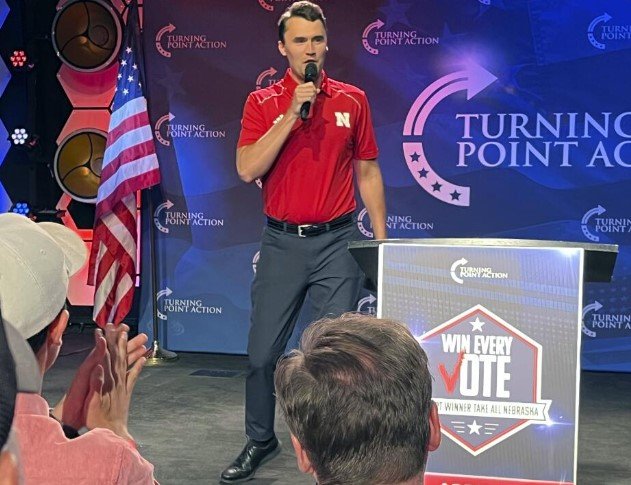In a strategic political maneuver, Nebraska’s Governor Jim Pillen has confirmed plans for a special session aimed at altering the state’s electoral vote distribution. This move could mark a significant shift in the political landscape, potentially impacting future presidential elections.
The Push for Winner-Take-All
The current bipartisan system in Nebraska awards electoral votes by congressional district, a method that has been in place for some time. However, recent developments have seen a push towards a winner-take-all system, which would allocate all electoral votes to the statewide winner of the presidential popular vote. This proposal has gained traction following a rally hosted by national radio host Charlie Kirk, amplifying the call for change.

The debate is not without controversy, as opponents argue that the current system allows for a more representative allocation of votes. Proponents, however, believe that the winner-take-all method simplifies the process and could benefit the state’s majority party.
Legislative Hurdles and Strategies
Governor Pillen’s announcement comes amidst discussions on how to navigate the legislative process to enact this change. One strategy under consideration is to suspend the Legislature’s rules that allow for a filibuster, which would lower the threshold for passing the winner-take-all proposal. This approach, however, has raised concerns about undermining legislative procedures and the potential for setting a precedent that could affect future governance.
The special session is expected to be a battleground for both sides of the aisle, with each camp preparing to present their case. The outcome of this session could have far-reaching implications, not only for Nebraska but also for the national political arena.
Implications for Nebraska and Beyond
The potential shift to a winner-take-all system in Nebraska is more than a local issue; it’s a microcosm of the larger national debate on electoral fairness and representation. As one of the few states that deviate from the winner-take-all norm, Nebraska’s decision could influence discussions in other states considering similar changes.
The special session is poised to be a pivotal moment in Nebraska’s political history, with the power to reshape how the state’s votes are counted in presidential elections. It’s a decision that will be watched closely by political analysts and voters alike, as it could alter the balance of power in future elections.

Comments